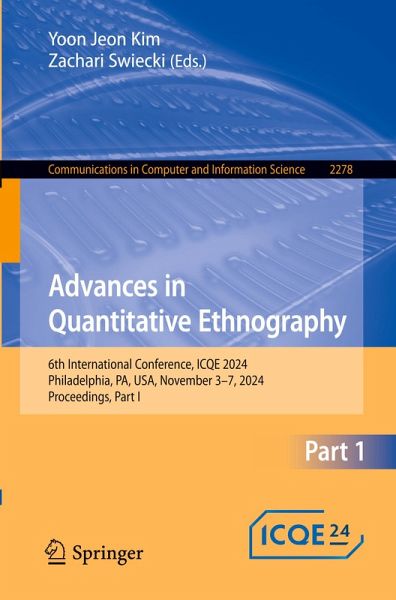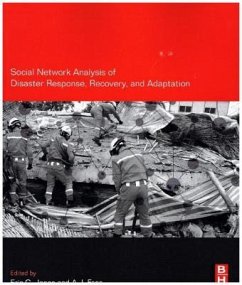
Advances in Quantitative Ethnography
6th International Conference, ICQE 2024, Philadelphia, PA, USA, November 3-7, 2024, Proceedings, Part I
Herausgegeben: Kim, Yoon Jeon; Swiecki, Zachari

PAYBACK Punkte
27 °P sammeln!
This two-volume set CCIS 2278-2279 constitutes the refereed proceedings of the 6th International Conference on Advances in Quantitative Ethnography, ICQE 2024, held in Philadelphia, PA, USA, during November 3-7, 2024.
The 31 full papers and 10 short papers included in this book were carefully reviewed and selected from 82 submissions. They are organized in the following topical sections: Theory and Methods; Teaching and Learning; and Cultural Discourse.
The 31 full papers and 10 short papers included in this book were carefully reviewed and selected from 82 submissions. They are organized in the following topical sections: Theory and Methods; Teaching and Learning; and Cultural Discourse.














